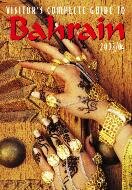|
|
 |
|||||
|
|
|||||||
 |
|||||||
|
|
|||||||
![]()
![]()
With Bahrain gaining in popularity as a tourist destination, many tour operators have begun offering package deals with charter flights and hotel stay. Check with your travel agent, there are some real bargains to be had!

The Al A'ali Mall is one of many major constructionprojects undertaken by Haji Hassan
How a poor farmer's
son built an empire
By Y M Sreekrishna Bhat
Ataba, Ataba. Step-by-step. That is how Haji Hassan describes his progress from a seven-year-old boy pulling his vegetable-laden donkey through the shallow waters separating Manama and Sitra to his position today as one of Bahrain's leading businessmen.
Most people who reach the top are either born with a silver spoon in their mouth or achieve success through the power of education. Hassan, now 79, fits neither description.
The eldest son of a farmer, he was born in A'ali, which was then one of Bahrain's poorest districts. With a family of nine to support, he had no choice but to help his father from a very young age. School was simply not an option.
Hassan started by selling vegetables grown in his father's farm in Sitra, pulling the donkey along from village to village, competing with other much older and established sellers.
His day began at five in the morning and ended late in the evening. Crossing over from A'ali to Sitra was itself a huge task as they had to wait for the water to recede and then wade through it for about an hour to reach the island.
If people of Aali were poor, people in Sitra were poorer. The vegetables were bartered for dates seeds or head of fish, which were used as fodder for farm animals. If he returned without finishing his goods, he would face the wrath of his father.
Hassan hated the job, but there was no other option and he continued doing it for about four years.
The young boy's skills were now being honed and he saw an opportunity in selling fish from Sitra in Aali. He found this more profitable and slowly his operation moved to Manama and Jidhafs.
A'ali was then, as is now, famous for a type of cement made from limestone (noora). Hassan sensed an opportunity in this business. He rented a shop in the "Wednesday market" near the present Sahara Hotel in Manama and started selling noora, bringing it all the way in sacks from his A'ali kiln on donkeys.
From the money he earned now, he was allowed to buy two kaboos (Arabic bread) and a glass of tea!
Making of noora is a laborious process. It was not a new business and most people in A'ali were involved in this business in one way or the other. Anyone who wanted noora had to come to A'ali or the shops in Manama. Hassan placed himself one step ahead of others in this business by both making and selling the product É a horizontal integration of sorts.
He also had his own novel marketing strategy: While coming to Manama, he would put a sack of low quality noora on his back and beat it to raise dust so people who wanted noora would know that a seller was nearby.
Those were tough times for someone of such tender age, and even now, recounting the hardships he had to face as a child brings tears to Haji Hassan's eyes.
Bit by bit, ataba ataba, the business began to expand and Hassan took the product to Muharraq and Hidd in dhows. As he grew older, he started to become more independent. He now used four donkeys and even hired the services of a worker, paying him two rupees a month, plus food and a thobe (traditional Arab dress) each year!
Things were looking much better and Hassan bought some land, constructed a building and set up a shop in Salmabad. He also retired his donkeys and bought a truck for the noora business.
Hassan, who was always looking at new opportunities, moved into real estate and also took up contracts for land filling and reclamation.
By the time he was 25, an age where most youths today are just starting out in their careers, Haji Hassan could truly say he was doing quite all right for himself. He was now married, the construction sector was booming and his Salmabad shop was a beehive of activity.
As a step forward, he decided to buy a block-making machine from Beirut. He travelled by cargo plane (it was cheaper), with two other passengers.
Though he did not know his co-travellers, Hassan decided to befriend them since he needed help with his business transactions.
One of them, Khalid Zubari, offered to help him and they stayed together in a hotel. The other was an Ethiopian named Idrees, who claimed he was a pilot and was on the lookout for a job.
Before saying goodbye to Idrees in Beirut, Hassan asked him what salary he wanted if he was given a job. One thousand rupees a month, came the reply. That was a princely sum in those days, and Haji jokingly offered to employ him É if he met him again.
Little did he know the joke would one day bring about a sweeping change in his life.
Back in Bahrain, Hassan had the machine set up and it was up and running when suddenly Idrees appeared.
Hassan was taken aback, but he was a man of his word. Though said as a joke, he not only employed Idrees, but also provided him with a house and his Volkswagen.
The well-educated and much-travelled Idrees lost no time in teaching Hassan the ways of the world. He told Hassan: "If you have to flourish you have to leave home and see the world."
Hassan took his advice. Promising to pay the airline agent after their return, Hassan, with Idrees, began a mission to Europe. First they went to Rome, then Milan.
In Milan, they went to an exhibition of construction equipment and Hassan was amazed to see the modern technology on display. He could not believe his eyes. Of particular interest for him was block-making machines which could produce a huge number of blocks. He collected all the catalogues he could lay his hands on. From Milan, the two went to Belgium, Sweden, Germany and London.
While in London, Idrees complained of illness and sought permission to go to Rome. Hassan gave whatever money he had to Idrees and left for Bahrain. That was the last he saw or heard of him.
For Hassan, the tour was an eye-opener. He was full of newly acquired knowledge that he was keen to use.
"I want to thank Idrees for what he has done, knowingly or unknowingly," he said.
Hassan's eyes were now set on a German machine which could make 4,000 blocks in eight hours. He opened a letter of credit with a bank and ordered the machine.
However, when people told him making such a big investment was a foolish idea, he developed cold feet. He transferred his money to another bank and even spent some of it. When the machine arrived he did not know what to do. The bank threatened to auction it off and make him pay the rest of the money. Hassan then decided to take the risk and buy it after borrowing some money from friends.
It was one of the best decisions he would make. The demand for blocks was so high that Hassan made a profit of 1,000 rupees a day an enormous sum at the time. He however kept the secret of his success to himself so no one would copy him. For five years he enjoyed a monopoly.
By the time others entered the field, Haji Hassan was already far ahead of the game. With the construction industry in a prolonged boom phase, there was only one way for Hassan, and that was up.
All these years, though Hassan was being educated in the "University of Life", he never found time to learn the alphabets. Sad though he is about this, his achievement becomes that much more great.
There were people who helped him overcome his handicap: trusted Bahraini aide Mohamed Salah, Idrees, Fathi Aidy from Lebanon, Briton John Hayes and a Jordanian named Morwan.
When his brother Ahmed graduated and joined him in the business, it came as a great relief to him. Two years later, his son Adel also joined him.
One person whom Haji credits with the success of the company is Rejinold Peter, an Anglo-Indian. As a technical person, he supported Hassan loyally till his death. "Rejinold was very hardworking and came with me wherever I went," said Hassan. When he died, Hassan said he cried, not knowing what to do next.
In 1979, members of the family took over the responsibility of running the company which had by now grown manifold with several divisions.
The Haji Hassan Group now owns Bahrain Asphalt, Haji Hassan Reinforcement, Bahrain Precast Concrete Company, Bahrain Blocks, Haji Hassan Construction, Bahrain Bulk Trade, Arabian Parts Company, Bahrain Transport and Haji Hassan Washed Sand Products.
Haji Hassan's success story is one of progressive achievements. He says if he is where he is today, it is because of hard work, faith in God, in truth and Islamic values.
Even when he failed in something, he would believe it was God's will.
"If He closes one door, He will open a thousand others."
The father of 11 children a son and a daughter from his first wife and six sons and three daughters from the second, Hassan says lack of education was a severe handicap and injected in his children the importance of education. He was very strict with them as far as studies were concerned.
Hassan, a simple man to this day, is known for his help to the poor and the needy. "My loyalty is to my country and its people, first and foremost. The profit I make is a profit generated from the country and the people. And hence the greater part of it should go to their good," he says.
SUCCESS STORIES
" Abdulnabi Al Sho'ala
" Fahmi bin Ali Al Jowder
" Johnny Young
" Engin Turker
" Farouk Almoayyed
" Karlheinz Aumann
" Mohammed Buzizi
" Mohammed Dadabhai
" Ebrahim Al Dossary
" Haji Hassan
" Faisal Jawad
" Khalid Kanoo
" Saleh Al Kowary
" Iqbal Mamdani
" Akram Miknas
" Abdul Rahman Morshed
" Khamis Al Muqla
" Mustafa Al Sayed
" Jamil Wafa
" Khalid Al Zayani
Bahrain is gateway to
huge Mideast market
Centre of Gulf
banking universe
Sreekrishna Bhat, editor of Bahrain based web portal Trade Arabia, has years of international experience in journalism.
He has worked for the Gulf Daily News and Gulf Construction in Bahrain, The Times of India and Indian Express in India, and The National in Papua New Guinea.
Bhat, who prefers going by his last name, writes on a wide variety of subjects, including politics, places, people and industry.